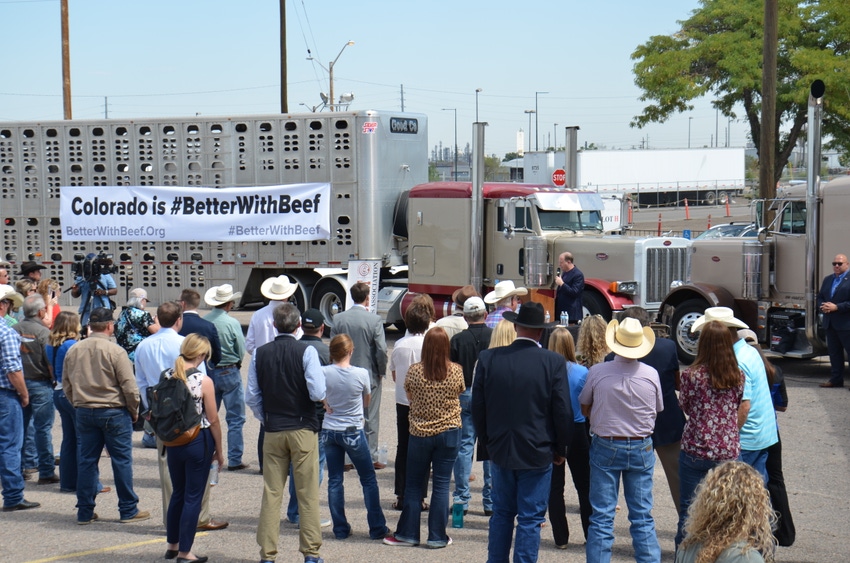Will Colorado agriculture change to produce plants for fake meat? Not likely.

“The demand for beef continues to grow not only in Colorado, not only in the United States, but especially worldwide. Why does it grow? Because people like the value they get and like the taste of meat.”
That’s what Jerry Sonnenberg, Colorado state senator from the eastern plains at Sterling, said to kick off a news conference touting Colorado’s livestock business. “Matter of fact, I've heard of informal polls that have talked about, when asked if you could have one meal and this was your last meal, what would it be? The vast majority choose some sort of beef dish. And that's important to remember as we try to work as an industry to meet the demand of the consumer.”
The purpose of the news conference was two-fold: first to kick off the Colorado is Better with Beef campaign. Second to allow Colorado Gov. Jared Polis to explain his stance on fake meat. Earlier, the governor was reported to have made a pitch to the Department of Agriculture leadership that they should research plant-based proteins and delivered 250 Impossible Whoppers to the department staff.
Read: As fake meat enters the marketplace, here's why beef will remain king
That drew an astonished outcry from Colorado livestock producers and an outreach from the Colorado Cattlemen’s Association.
“I think we just need to understand my job is to make sure that Colorado is prepared for the future,” Polis said at the news conference. “And of course that means that if more people are eating plant based burgers, we want to make sure that we position Colorado farmers for success, whether it's sunflower, whether it's corn, whatever products are going into those and the technology associated with that. It's not an either or proposition.”
Polis assured the beef producers in attendance, “We want to make sure that we produce the best damn beef in Colorado and grow and expand markets for Colorado ranchers. And we're going to do everything we can to get that done.”
Agriculture, he said, is really at the foundation of every human life. “And Colorado's beef industry is too important to fall victim to a political food fight. We need to focus on growing our beef industry for the future, growing our livestock industry for the future.
“And I know that any industry can always make a choice. We can either be scared of what the future brings or we can find a way to make the future work for us. And I know that working with cattlemen and working with our beef producers, we can find a way to make the future work for Colorado ranchers.”
Read: What business are we in? Cattle or protein?
I have to believe the governor was sincere in his remarks and sincere in his explanation about his stance on adapting Colorado agriculture to producing inputs for plant-based fake meat. I also have to believe that the governor now is much more attuned to the legacy of Colorado’s ranching industry and its present contribution to the state’s economy.
And don’t misunderstand the swift and astonished reaction to the governor’s remarks. Beef producers aren’t afraid of competition from fake meat. The real stuff is better—way better—and most consumers won’t abandon the taste and satisfaction of eating good beef for the fake stuff.
Rather, the beef industry is insistent that fake meat companies don’t co-opt our terminology. To call a bunch of mashed up plants a burger is, frankly, insulting.
As Baxter Black says about cowboys, “They’re hard to see from the highway.” I hope the governor will take advantage of his relationship with the Colorado Cattlemen’s Association and travel a few dirt roads. Getting to know his constituents outside the confines of Denver might be beneficial for everyone.
About the Author(s)
You May Also Like



